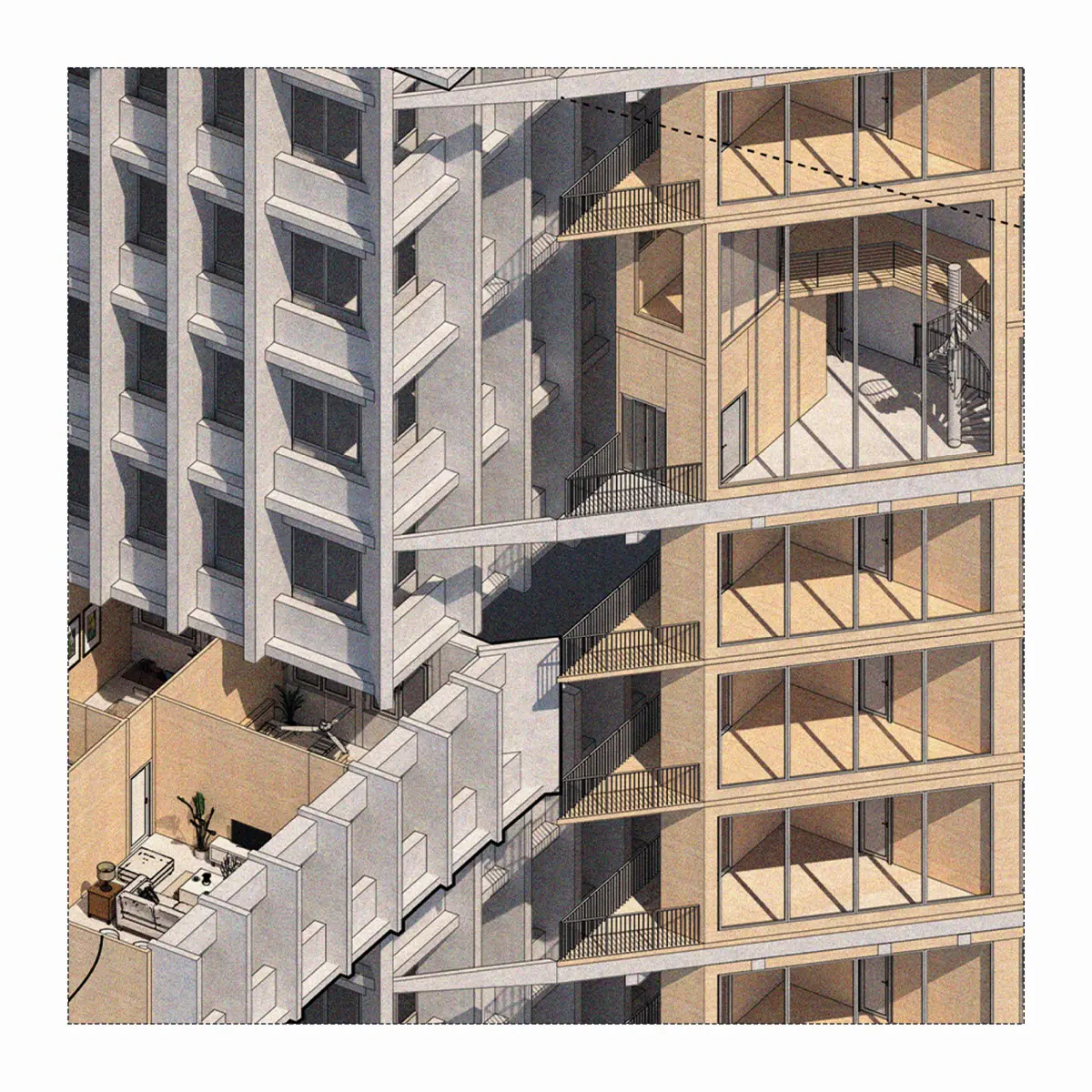
A City for Citizens
BY Muhammad Nur Syafiee Bin Ayub
SUPERVISED BY Assoc. Prof. Johannes Widodo (Dr.)
STUDIO THEME ASIAN MODERN HERITAGE IN THE CONTEXT OF CHANGE: CONSERVATION FOR SUSTAINABILITY
Abstract
“Citizen” traces its etymological roots to Latin “civitas”. The city, abstracted to its purest state, is the setting for habitation: it belongs to its people and is bound by the inextricable, symbiotic relationship between city and citizen. Over decades of extreme urban zoning, we have observed an exodus of inhabitants flocking away from the urban core towards sub-urban nodes in the periphery—like a soul uprooted from the body. Furthermore, residential projects that do exist in the city-centre are either luxury private housing or exclusive public housing that leaves out historically marginalised groups, including single parents, LGBT couples, and singles. How can high-density, low-cost housing remedy the inadequacies of public systems?
This thesis responds to three phenomena that occur in tandem: a rise in demand for affordable housing in the city-centre, a fall in demand for office space in the CBD, and a desperate need to preserve our modernist architectural heritage.
Supervisor Comments
The thesis proposal's strong points include social inclusion and bringing back the people to Singapore's downtown core, while also highlighting the significance of conserving the embedded carbon on large modern buildings. The thesis centred on the cost and economic feasibility arguments, which were shown by integrating certain additional forms into the original Brutalist architectural design. In keeping with Singapore's Green Plan 2030 and the United Nations' call for Sustainable Development Goals, the daring concept might spark a new discussion on environmental sustainability, social-economic fairness, contemporary heritage protection, and carbon neutrality.
- Assoc. Prof. Johannes Widodo (Dr.)